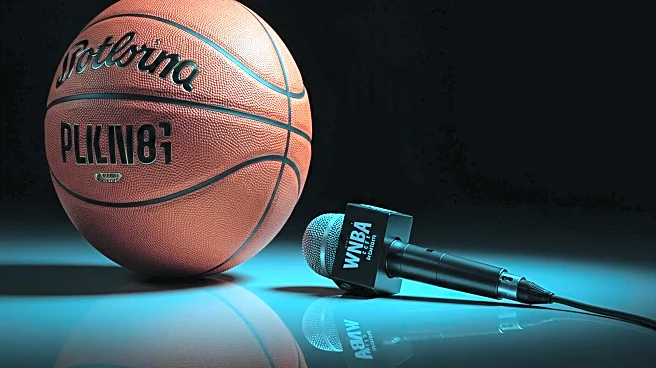What's Happening?
Kelsey Plum, a star player for the Los Angeles Sparks, recently addressed comments she made about Caitlin Clark's team during the WNBA All-Star Game. Plum stated that her remarks were intended as a joke, but they were met with significant backlash. During the All-Star Game in Indianapolis on July 19, Plum commented that Clark's team did not attend a morning meeting to discuss collective bargaining agreement talks. This meeting was part of ongoing negotiations between the union and the WNBA, and players wore T-shirts with the message 'Pay Us What You Owe Us' to highlight the issue. Plum explained on Sue Bird's 'Bird's Eye View' podcast that her intention was to bring humor to the situation, but she acknowledged that her joke was poorly received. She expressed regret that her comments detracted from the players' unified stance on the matter.
Why It's Important?
The incident underscores the sensitivity surrounding labor negotiations in professional sports, particularly in the WNBA, where players are advocating for better pay and working conditions. Plum's comments inadvertently shifted focus away from the serious issue of collective bargaining, highlighting the challenges athletes face in balancing advocacy with public perception. The backlash also reflects the heightened scrutiny athletes encounter when discussing labor rights, emphasizing the importance of clear communication in such contexts. This situation may influence how players approach public discussions about labor issues in the future, potentially affecting the dynamics of ongoing negotiations.
What's Next?
As the WNBA and the players' union continue their negotiations, the focus will likely return to the substantive issues at hand, such as pay equity and working conditions. Players may become more cautious in their public statements to avoid misunderstandings that could detract from their advocacy efforts. The league and union are expected to engage in further discussions to reach a resolution that addresses the players' concerns. Stakeholders, including team owners and league officials, will need to consider the players' demands seriously to maintain a positive relationship and ensure the league's growth and stability.










